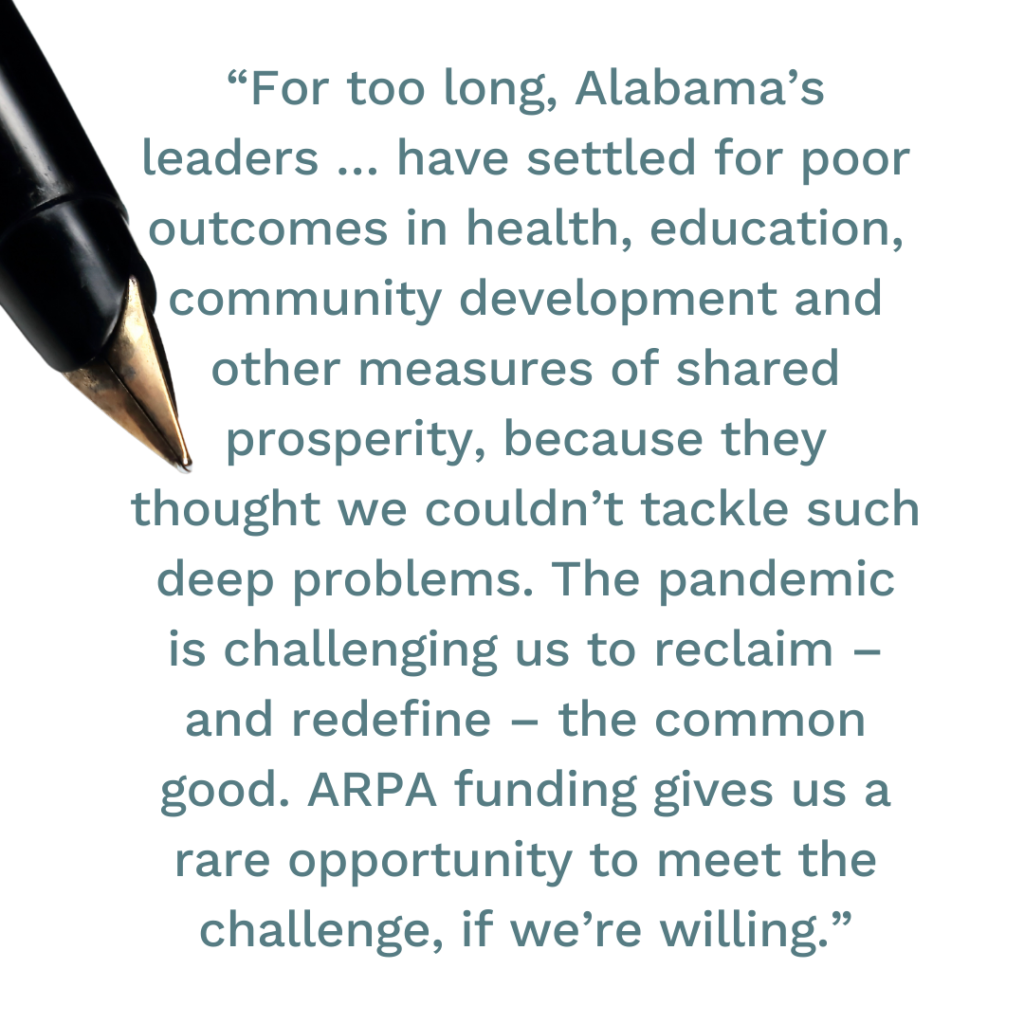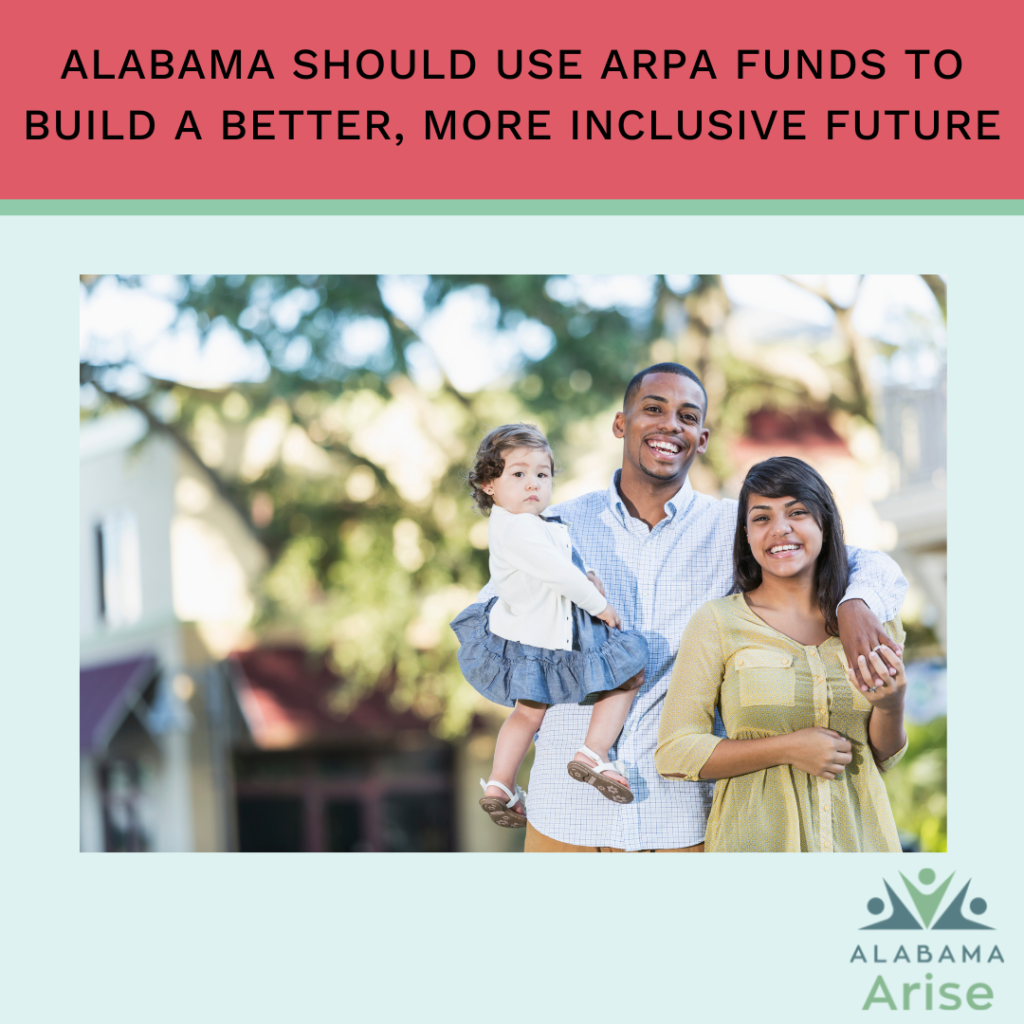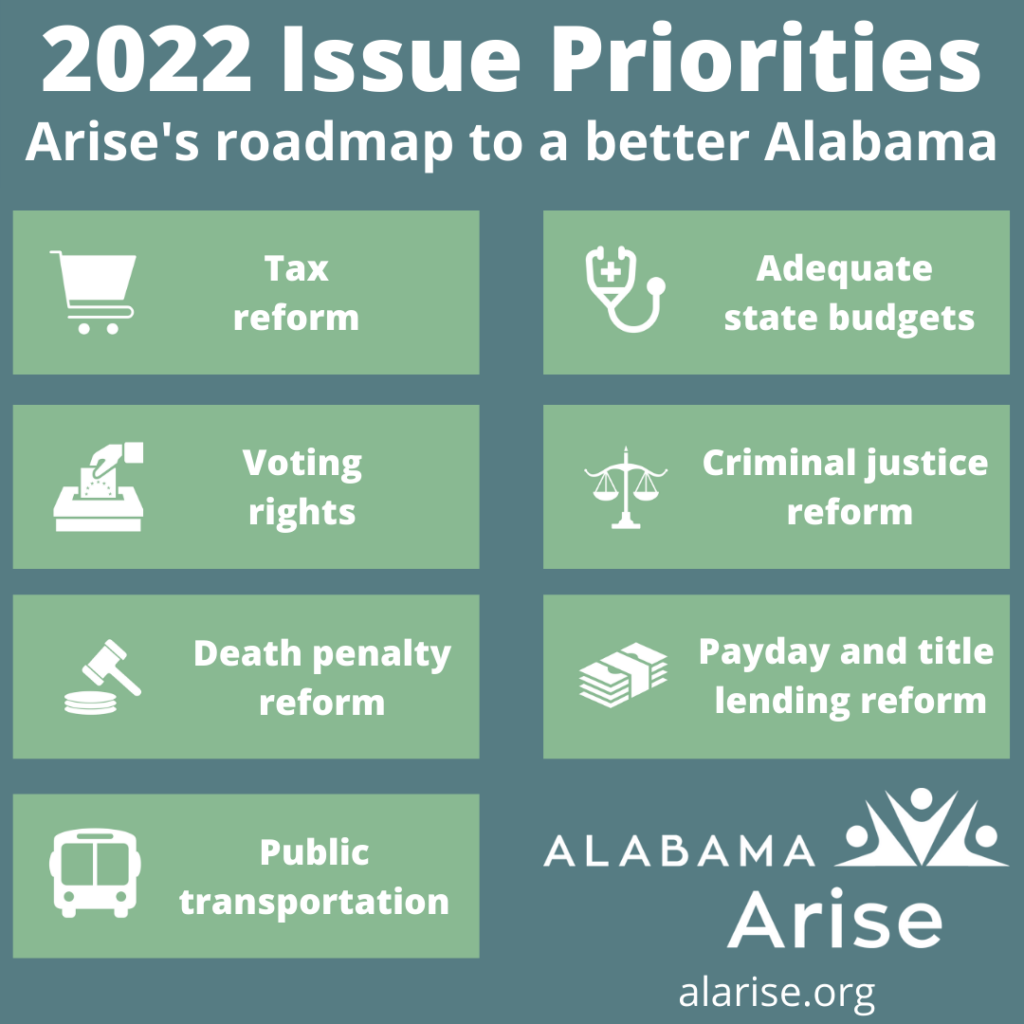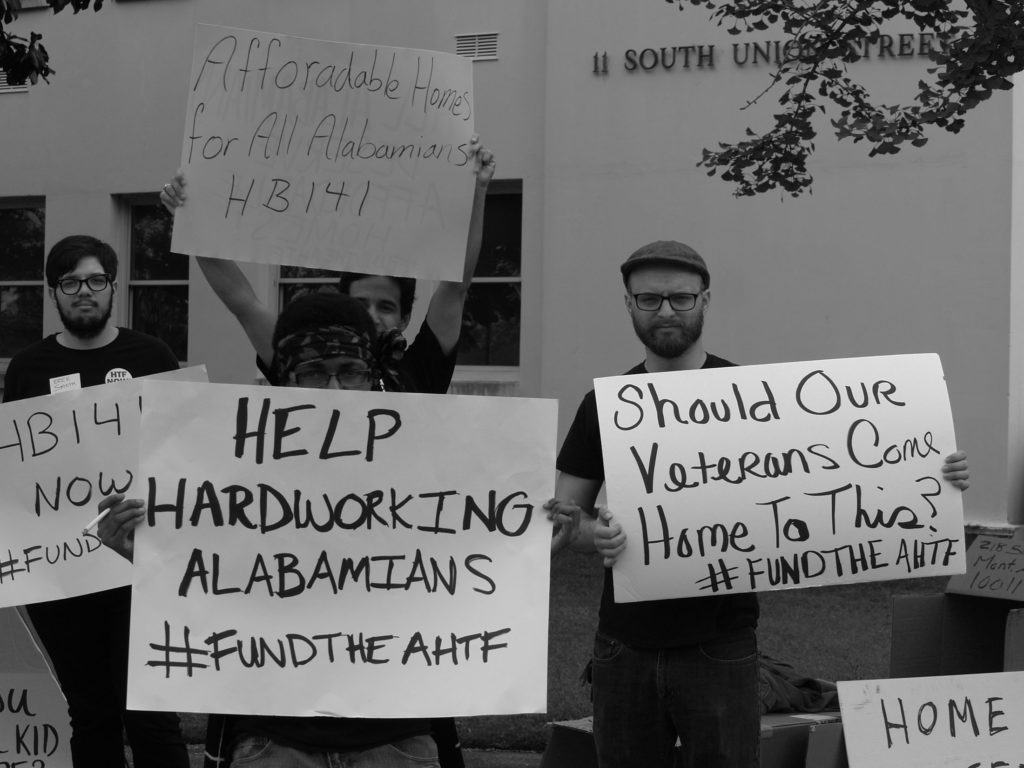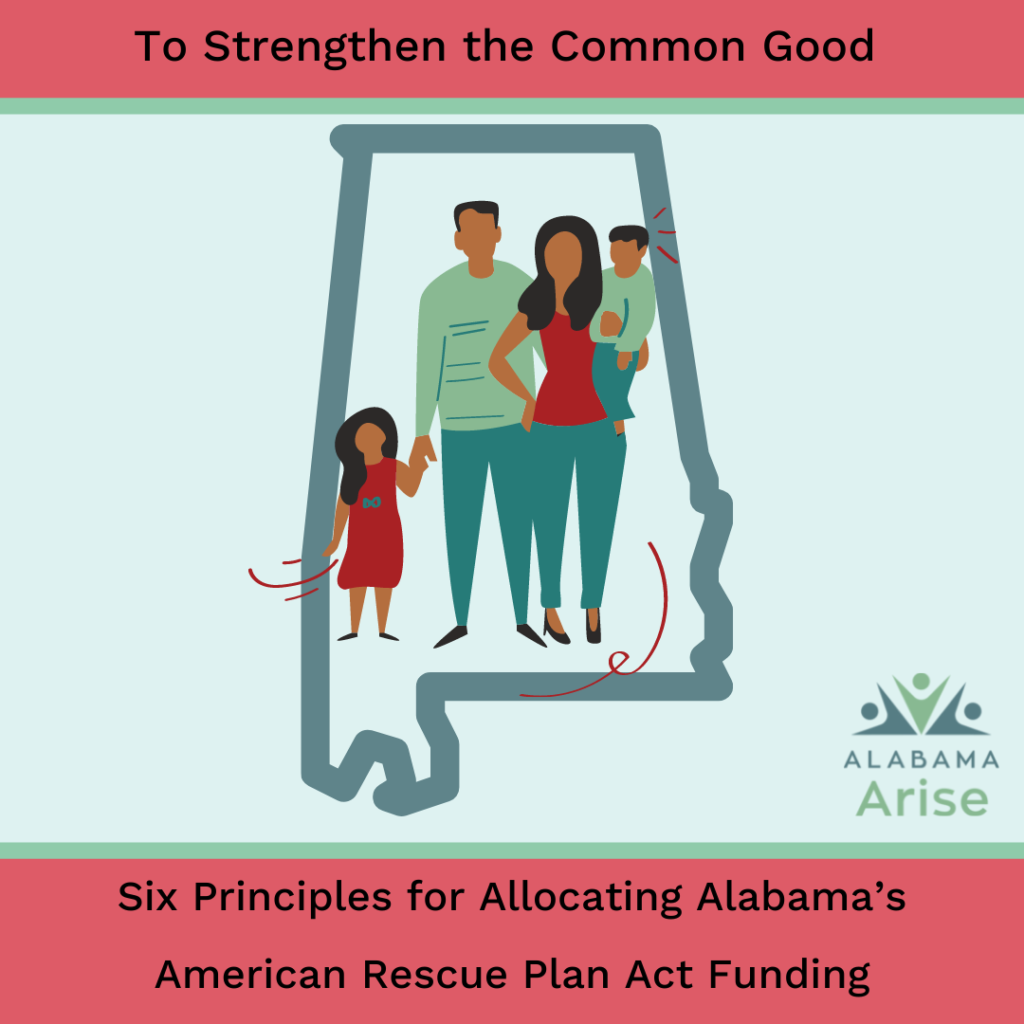This post originally appeared on the Economic Policy Institute’s blog.
When the Alabama Legislature gathered for a special session in September, it made a shortsighted and costly mistake. Lawmakers chose to allocate $400 million in American Rescue Plan Act (ARPA) money ‒ about 20% of Alabama’s federal COVID-19 relief funds ‒ to help finance a $1.3 billion prison construction plan.
Alabama prisons are decrepit, dangerous and massively overcrowded. The U.S. Department of Justice (DOJ) has sued the state over the unconstitutional conditions in the institutions. Moreso, raiding funds designed to help people and communities recover from pandemic-related economic distress will do nothing to make Alabama more humane and inclusive. That is particularly true when Black Alabamians are three times more likely to be incarcerated than white Alabamians due to discriminatory practices in policing and incarceration.
The state has a better path to build a more sensible criminal justice system and avert a looming federal takeover. New buildings to house the same old problems won’t get us there. Real change will require meaningful changes to sentencing and reentry policies.
Sentencing reform is vital to build a more humane criminal justice system in Alabama
Alabama’s sentencing scheme still relies on outdated ideas about punishment and limits availability of services shown to improve reentry. One example is the state’s Habitual Felony Offender Act (HFOA), which increases sentences for even minor offenses. Like other mandatory minimum laws, it is a relic of earlier racially motivated “tough on crime” practices and leads to higher rates of incarceration throughout the South.
The Legislature made minor improvements to the HFOA in 2015 but refused to make them retroactive. That failure has left hundreds of Alabamians still serving sentences for convictions that today would result in less time under current presumptive sentencing guidelines.
Alabama Arise supports full repeal of the broken HFOA. Until then, the state at minimum should ensure people aren’t serving wildly different sentences for the same conviction.
Those efforts have been an uphill battle for reform advocates. During September’s special session, lawmakers failed to pass a bill to allow some people to petition for resentencing under current standards. Legislators also have failed in recent years to expand medical release and releases for older people who have aged out of reasonable likelihood of recidivism. Efforts to expand and improve diversion programs have stalled as well.
All of these policies would save Alabama money in the long run. They also would demonstrate respect for the humanity of incarcerated people. But legislators have chosen not to act.
This persistent refusal to engage in meaningful reform may cost Alabama dearly. Failure to take even small steps to reduce overcrowding and improve atrocious conditions may spur the DOJ to conduct a wholesale takeover of the state’s prison system. If that happens, the Legislature will have only its own inaction to blame.
How federal aid should help Alabamians
The consequences of prioritizing bad spending go beyond federal intervention in the broken prison system. ARPA relief funds represent an opportunity to move Alabama forward in many areas that would increase opportunity and stability for people across the state.
Provide health care to hundreds of thousands of uninsured Alabamians
More than 220,000 Alabamians live in a Medicaid coverage gap. They make too much to qualify for Medicaid under the state’s bare-bones eligibility limits but too little to qualify for subsidized coverage through the Affordable Care Act. Another 120,000 Alabamians have stretched their finances seriously to pay for coverage they can’t truly afford.
Federal ARPA funds would allow Alabama to expand Medicaid. Alabama could use these dollars to meet other critical spending priorities. This would free up state funds to pay for the startup of an expanded Medicaid program to cover adults left out of coverage.
Update infrastructure and invest in equity
Alabama should use ARPA funds to update and expand infrastructure and support services. Economic fallout from the COVID-19 pandemic has placed a disproportionately heavy burden on women, Black Alabamians and communities with few resources upon which to fall back. Investments in child care, expanded early childhood education and long-term postpartum health coverage would deliver major improvements in quality of life for people hit hardest during the pandemic.
Federal relief should be used both to lessen the pandemic’s immediate harm and to break the pattern of long-term, intentional disinvestment in the Black Belt and other areas. Community-based organizations offer valuable connections and expertise to guide investment to where it is needed. The state should ensure these groups have the capacity and pathways to provide input on best uses for relief money.
Finish implementing solutions on housing and public transportation
ARPA funds also represent an opportunity to take steps forward where lack of political will has hindered full implementation of state solutions. Within the past decade, the Legislature created both the Public Transportation Trust Fund and the Affordable Housing Trust Fund (AHTF). It also has failed to provide a single dollar for either.
Transportation investment would improve quality of life for everyone. Robust public transit creates long-term, high-wage jobs and enables people to get to work reliably and inexpensively. It is a vital public good that helps older people and people with disabilities fully participate in public life.
Housing investment would help alleviate the state’s severe affordable housing shortage. State AHTF funding would increase community resilience by allowing struggling families to spend less of their incomes to keep a roof over their heads. It also could help speed up rental assistance and prevent evictions during future recessions.
Increase transparency and modernize technology
Alabama’s technological infrastructure has lagged behind contemporary standards. Early in the pandemic, this resulted in major delays of unemployment insurance payments. The patchwork of IT systems at all levels of state government has contributed to public confusion and delays. Technology investments would reduce duplication of effort and increase public access to the public’s information.
A new path forward
ARPA provides a generational opportunity to begin remedying policy shortcomings that have held back progress, perpetuated inequality and furthered Alabama’s history of racist policy choices. This chance is too valuable to waste by doubling down on past failures like foolish and overly punitive criminal justice policy.
The Legislature’s recent misuse of $400 million is inexcusable, but this bad decision has not blocked the path forward. The remaining ARPA funds are a chance to invest in adequate resources and transparent, responsive government. Our state must seize this opportunity to improve life significantly for every Alabamian.


